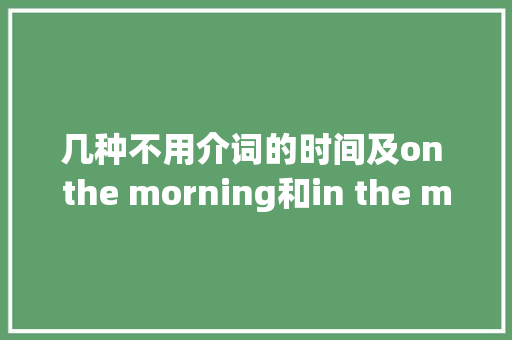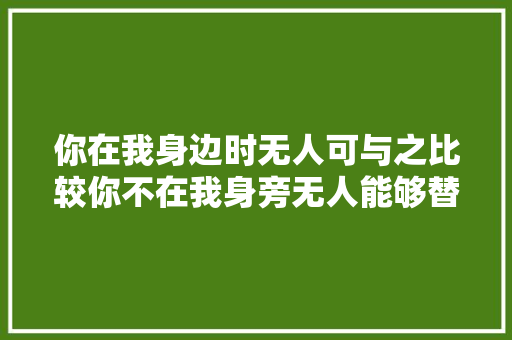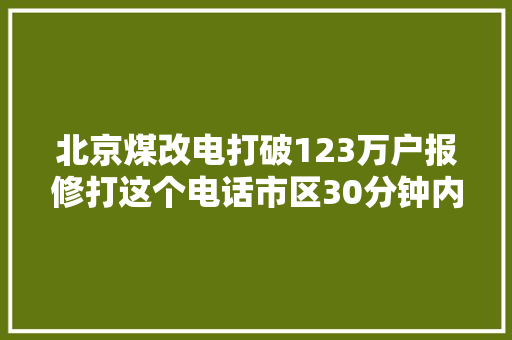1、+today、yesterday、tomorrow、tonight前不用介词,
如:

There was football match yesterday evening.
昨天晚上有一场足球赛。
从上列可以看出,yesterday/tomorrow morning/afternoon/evening前不用介词,
2、+this、that、these、those韶光,前面不用介词。
如:
I find that I need very little sleep these days.
我创造最近我只须要睡一点觉。
3、+last,next加韶光时,前面的介词at、on、in一样平常省略。
如:
Didn't I see you at the party last week?
上周聚会我瞥见的是你,对吗?
但,如果不是at、on、in,一样平常不能省略,
如:
I haven't been to my hometown since.
从去年以来我就没回过家乡。
4、+the day (week, month, year)+before/after…前不用介词。
如:
They arrived in Paris the day before yesterday.
前天他们到达巴黎。
5、+every, each前时(由于为频率的副词,表示“在每次”),前不用介词。
如:
Do you watch TV every day.
你们每天看电视吗?
6、+on特定日子,可以省略介词on。
如:
I can see him (on) New Year's Day.
在元旦我可以瞥见他。(这里用on,指特定某天)
7、+for一段韶光,
1)、+表示静态的动词 时可以省略。
如:
I have stayed there (for) three hours.
我在那里已经呆了三个小时。
2)、+动态动词,或在句首及否定句中,介词for不能省略。
如:
I haven't heard from him for three years.
我三年没有收到他的信了。
For three years, I have probed for understanding.
3年来,我一贯都想弄明白。
3)、+walk, run, drive, travel动词,表示间隔时,for可以省略。
如:
He ran (for) a mile in five minutes.
他五分钟跑了一英里。
8、+all韶光,前面常日不用介词。
如:
I haven't seen her all day.
我整整一天没有瞥见他了。
9、+at about…表示韶光时,介词at可以省略。
如:
The sun rose (at) about six o'clock today.
本日太阳大约在六点升起。
现在我们来差异一下on the morning和in the morning,
前面我们说过,
一天内的用on,什么这里怎么用in了呢,不对呀,
这里on一样平常用于确定的某一天,如来日诰日早上,或某年月日的那天,
They said so on the morning news.
他们在早上的新闻里那样说。(不是每天早上,单指本日早上)
而in用于不愿定的韶光,如时令,年月份,或某天早上,
如:
We watch TV in the morning.
我们一样平常早上看电视。









